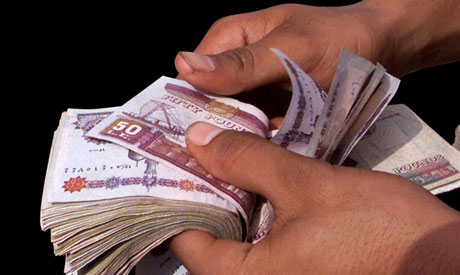
The Egyptian pound inched to its weakest in almost eight years on Wednesday as the government resumed negotiations for a $4.8 billion loan from the International Monetary Fund.
Traders said that by letting the pound slip, the government seemed to be signalling to the IMF it is prepared to be flexible over the value of the currency, which many analysts say is substantially overvalued against the dollar.
The pound has fallen by less than 5 per cent since last year's popular uprising that toppled Hosni Mubarak plunged the nation into months of political turmoil, which deterred tourists and investors, two of Egypt's main sources of foreign exchange.
The currency was bid as low as 6.1112 to the U.S. dollar on Wednesday, its weakest since 30 December, 2004. On Tuesday it was last bid at 6.108.
"I think it's all ahead of the IMF negotiations," said one currency dealer. "It wants to ease the fears of the IMF that it [might not] be able to fund its balance of payments deficit."
Egypt formally requested the IMF loan in August to help it plug budget and balance of payments deficits worsened by the uprising, and an IMF team arrived in Cairo on Tuesday for a second round of negotiations.
The central bank has spent more than $20 billion in foreign reserves to support the pound since the uprising. President Mohamed Morsi said in August, when it was trading around 6.09 to he dollar, that the pound would not be devalued.
The central bank rarely intervenes directly to control the pound's price against the dollar, but dealers say it often uses state-controlled banks to keep it from weakening.



